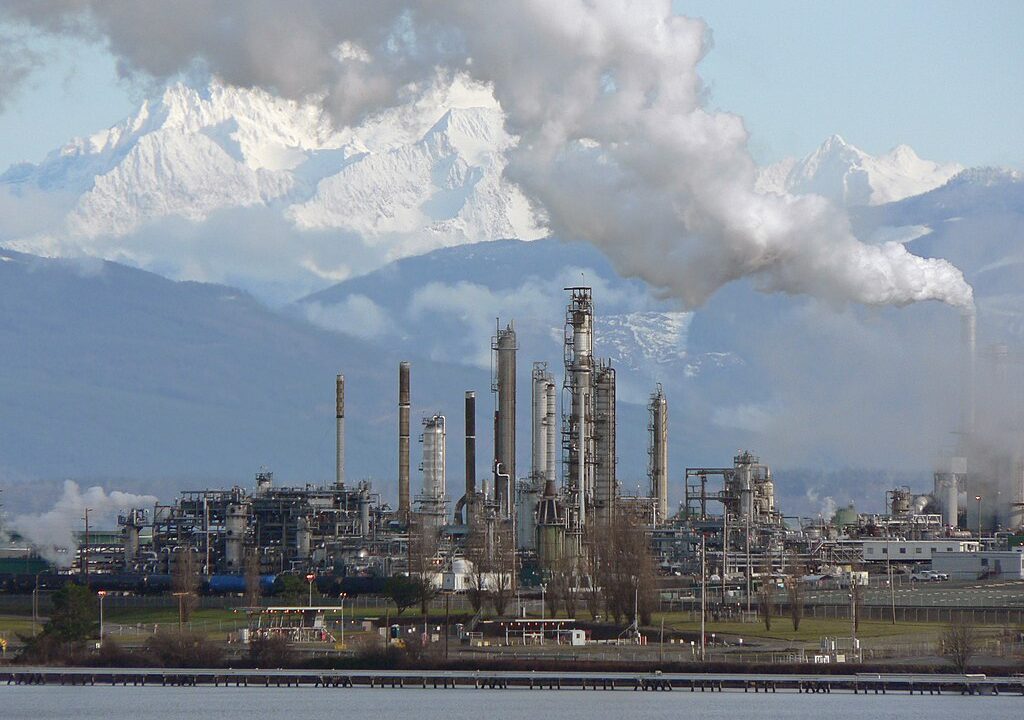 “Anacortes Refinery 31911” by Walter Siegmund (talk) is licensed under CC BY-SA 3.0.
https://upload.wikimedia.org/wikipedia/commons/thumb/5/51/Anacortes_Refinery_31911.JPG/1024px-Anacortes_Refinery_31911.JPG
“Anacortes Refinery 31911” by Walter Siegmund (talk) is licensed under CC BY-SA 3.0.
https://upload.wikimedia.org/wikipedia/commons/thumb/5/51/Anacortes_Refinery_31911.JPG/1024px-Anacortes_Refinery_31911.JPG
Across the country, many states are flush with cash and cutting their taxes in response, but not Washington. Instead, they seem hellbent on raising them.
According to Lacy Dadayan, a senior research associate at the Urban-Brookings Tax Policy Center at the Urban Institute, tax revenues are increasing in almost every state. “We keep seeing revenues perform much stronger than revenue forecasts.” This has led to many states cutting taxes. According to the Tax Foundation, as of February 1, “13 states have legislation worth watching that would cut individual income tax rates” and “nine states—with a significant overlap—have noteworthy proposals to cut corporate income taxes.”
In contrast, last year, Washington passed an illegal income tax on capital gains tax from higher earners. This tax triggered a lawsuit from small business owners, resulting in the law getting struck down. This year, Washington’s long-term care payroll tax was due to come into effect, which would apply to out-of-state residents working in Washington. This was so unpopular that lawmakers delayed the tax to amend it. Most people would think that two taxes were enough. Unfortunately, Washington’s lawmakers are not most people.
Recently, Washington legislators proposed a 6-cent tax on fuel exported to other states, drawing on Washington’s large quantities of fuel refined. This allows Washington lawmakers to have more revenue without raising the gas tax on its citizens by passing the buck off to other states. Inslee’s spokesperson has suggested that they would sign it if he came to it, saying “Washingtonians bear the climate impacts of that fuel production. So it’s not unreasonable to share the social cost of carbon with those who benefit from our fuel production.”
This is not only bad law; it is illegal per the Commerce Clause of the US Constitution. Idaho, Oregon, and Alaska all condemned the tax, with Oregon Governor Kate Brown saying, “Oregonians will not stand for a gas tax levied by Washington with no consultation with our state, business community, or residents.” In addition, Oregon threatened to hold funding to replace an I-5 bridge. Meanwhile, Idaho Governor Brad Little and his attorney general sent a joint letter asking Inslee to veto the bill should it land on his desk.
Alaska threatened retaliatory taxes. “Frankly, I’m tired of being thought of as a Washington colony,” said Republican State Representative Kevin McCabe of Alaska. McCabe pushed for a 6 cent per pound tax on fish caught in the state and a 6 cent per foot tax on Washington boats moored in Alaskan harbors in retaliation. He has also called for a $15 per barrel tax on crude oil shipped from Alaska to Washington.
These threats seem to have cowed the Washington Legislature, with several Democrats calling for the fuel tax to be removed from the transportation package where it was proposed as part. However, the fact they even considered the tax is telling.
One of Washington’s most competitive qualities is its lack of an income tax. This is immensely popular and keeps Washington competitive. Ten ballot measures to introduce an income tax have failed, dating back to the 1930s. Despite this, Washington’s legislature is determined to squander this reputation by passing any tax they can get away with. Washington voters deserve better. They deserve a legislature that responds to these massive surpluses by giving the money back, not taking more.

